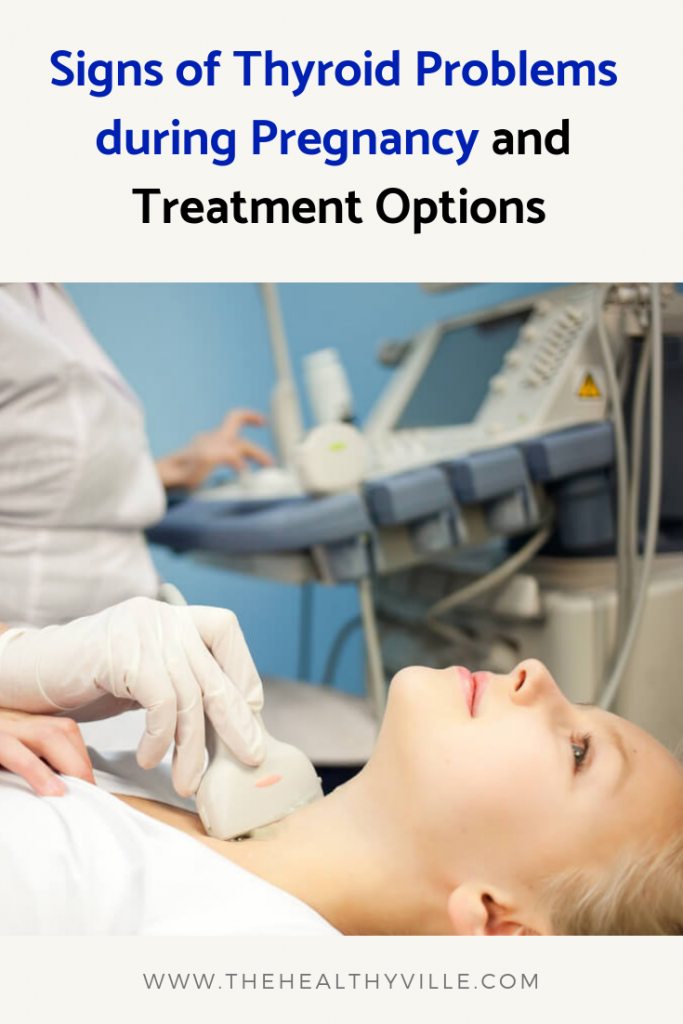During pregnancy, signs of thyroid problems can appear, and you need to recognize them on time. Hypothyroidism can cause problems in pregnancy, both in the mother and the baby, so beware of the symptoms.
There are two major thyroid problems that can appear due to lack or excess of thyroid hormone secretion, the hyperthyroidism and the hypothyroidism. However, the latter often affects women during pregnancies. By knowing the onset and early signs of thyroid problems, you will be just fine.
The treatment of hypothyroidism during pregnancy is basically the same as for a non-pregnant woman or for a man. However, pregnancy implies greater control and follow-up, as it may have consequences for the good course of pregnancy.
Thyroid hormones play an essential role during pregnancy. They affect both the development of the baby and the state of health of the mother. An adequate treatment of hypothyroidism allows a pregnancy without major complications.
The data indicate that diseases of the thyroid gland are more frequent among women of reproductive age. In turn, estimates are that hypothyroidism occurs in 0.25% to 2.5% of pregnancies. Therefore, it can be said that the incidence of this problem is low.
Thyroid and hypothyroidism
The thyroid is a gland and as such its main function is to secrete hormonal compounds. As it is an endocrine gland, the hormones that come out of it go directly into the blood.
For them to do so, they need iodine in their body. Thyroid hormones have multiple functions. Just to mention the most important, we have:
Growth and development.
Increase in oxygen consumption.
Development of the central and peripheral nervous system
Temperature regulation.
A person has hypothyroidism when the gland cannot make enough thyroid hormone. This causes from small discomforts, to serious health problems. In most cases it can be treated successfully, although not cured.
Changes and signs of thyroid problems during pregnancy
Pregnancy brings with it hormonal and physiological changes, which end up affecting thyroid function and result in the appearance of signs of thyroid problems. It is normal for TSH (thyrotopin, or thyroid stimulating hormone) to have slightly low values during the first trimester of pregnancy.
Total T3 (triiodothyronine) and total T4 (thyroxine) remain high throughout pregnancy. Likewise, the thyroid gland can increase in size. In some cases the goiter associated with pregnancy appears.
The baby depends entirely on the mother to produce the thyroid hormone, during the first 10 or 12 weeks of pregnancy. Then the baby produces the hormone on its own. Despite this, the baby still depends on the mother taking enough iodine for the hormones production to be proper.
Risks of hypothyroidism during pregnancy
The treatment of hypothyroidism during pregnancy is essential, since there are different risks for both the mother and the baby. Among others, the mother may develop maternal anemia, myopathy and congestive heart failure.
It is also possible that abnormalities occur in the placenta, that the child is underweight at birth and that there is postpartum hemorrhage. The risk of this happening is greater if the hypothyroidism is severe.
At the same time, thyroid hormone is essential for the development of the baby’s brain. Science has not been able to establish exactly what the consequences of hypothyroidism in this development are, but it is known that they can generate abnormalities.
Hypothyroidism also increases the risk of spontaneous abortion during the first trimester of pregnancy or premature delivery. It can also affect the increase in blood pressure, causing the so-called preeclampsia, which is a complication of care.
Further info: Use This Easy Test To Check Whether You Have Iodine Deficiency And Hypothyroidism!
Treatment of hypothyroidism during pregnancy
The treatment of hypothyroidism during pregnancy does not lead to a cure, but it can lead to total control over the disease. It basically consists of replacing the thyroid hormone with synthetic levothyroxine. This is exactly the same as the T4 that produces a normal thyroid.
The only risk of synthetic hormone is that the dosage is not so straightforward. If too little is taken, hypothyroidism persists. If too much is taken, hyperthyroidism may develop. That is why it is necessary to maintain constant medical monitoring and follow-up.
Another component of the treatment of hypothyroidism during pregnancy is to test thyroid function every 6 to 8 weeks at the most. These measurements are what allow us to determine if any change in the dose of levothyroxine should be made.
It is also very important to perform a permanent control of the iodine level in the mother. This is essential so that the synthesis of thyroid hormones in the mother and the fetus is not altered. The mother must maintain a diet rich in iodine.
Don’t forget to SHARE the signs of thyroid problems during pregnancy with your friends and family on your social networks!

